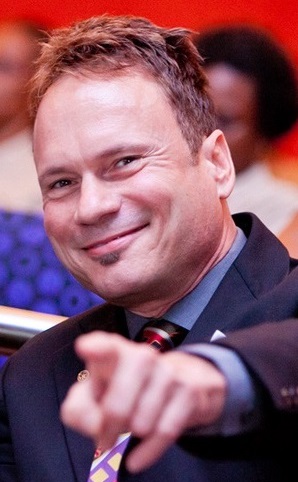Mental Health
There is not a day that goes by without media information regarding mental health. Depression; anxiety, bipolar, Alzheimer's, addictions, overdoses, suicides. Our District- through Immediate Past District Governor Barry Fraser (who lost his father to suicide when Barry was 14) is forming a Mental Health Initiative. Assistant Governor Anne Nauts and Collyer Smith (who recently lost his son to an overdose) are co-Chairing. The mission:
1) Get our Rotary members we work with, engaged, and join the Rotary Action Group- Mental Health.
Collyer has joined and will help those who have questions.
2) Engage our Clubs to form a Mental Heath Committee.
(The Birmingham Rotary Club has already developed a committee)
(The Birmingham Rotary Club has already developed a committee)
3) Find speakers on mental health to speak to our clubs, If we find good speakers- share with our group so that we can all benefit.
Tom McCarthy writes: The Chatham Ontario Rotary Club has had a youth mental health committee for approximately 10 yrs – I have been a member since the beginning and currently serve as chair. Our club helped to fund the start up on the early psychosis intervention program led by our local hospital and the establishment of a youth mental health hub/drop-in centre as part of a national research project across Canada (ACCESS – OPEN MINDS).
And the Birmingham Club has just started a Mental Health Committee.
From Tia Marie Sanders: In my last conversation with Interact clubs, they are eager to help with the Rotary mission. They have been brainstorming connections to mental health as it relates to school age group. They are talking about making it the Interact Day theme on mental health. They mentioned a student panel. and hotline resources that teens can share on social media.
In addition, we are reaching out to our Rotaract group for their support and feedback. University of Michigan is having their 17th Annual Depression on College Campuses Conference- below is information. We are reaching out to our University of Michigan Rotaract group to lean more.
As counseling centers continue to be faced with an ever-increasing demand for services, colleges and universities must consider more effective and efficient strategies for providing support to a large population of students with unique and varying needs. Emerging strategies include precision health and stepped care approaches to better determine and provide the “right intervention for the right person at the right time.”
Join us for the 17th Annual Depression on College Campuses Conference to learn about new research findings, model programs, and policies which highlight evidence-based approaches to identify and determine the level of intervention required to best match student need to improve health outcomes.
Learning Objectives Audience Continuing Education
Depression among college students is an urgent public health problem. If we are to prevent the progression, chronicity, recurrence, and burden of depression, we must emphasize earlier detection, intervention, and ultimately, prevention.
Learning objectives and expected results for the conference participants are an improved understanding and ability to implement:
- Best practices and model programs to meet the growing demand for mental health services based on level of care needed;
- Research which demonstrates the practice implications and impact of utilizing a stepped care approach to campus mental health programs and services;
- Best practices for service delivery, prevention, and intervention methods to address mental health concerns among students with varying levels of mental health distress;
- Outreach models to reach students with depressive illnesses, or who are at risk of developing a depressive illness, in order to facilitate treatment engagement;
- Strategies for faculty, staff, and students to support students via their different campus roles;
- Personalized treatment strategies to improve health outcomes of college students.
The conference is targeted to academic advisors, counselors and counseling center directors, faculty, health educators, parents, psychiatrists, psychologists, student affairs administrators, staff, and students
Continuing Education Applications have been made to the:
- National Association of Social Workers and the Michigan Social Work Continuing Education Collaborative to provide continuing education credits for social workers.
- National Board for Certified Counselors to provide continuing education credits for certified counselors.
- National Commission for Health Education Credentialing, Inc. to provide continuing education credits for Certified Health Education Specialists.
Dates & Location
March 13-14, 2019
U-M Rackham Graduate School Building, Ann Arbor
Contact Stephanie Salazar with questions: sawaters@umich.edu
Respectfully Submitted,
Collyer
Collyer A. Smith
Rotary Assistant Governor District 6380
Rotary Club of Ann Arbor
Rotary Club of Ann Arbor
Immediate Past President 2017-2018
be The difference that makes A difference-
Nagaraja Rao
Nagaraja Rao
cell: 734-545-0644
From IPDG Barry Fraser:
I would like you to forward to the Committee these websites which note a very high profile outreach in Canada by Bell, our primary telecommunications carrier. Note next Wednesday as National Mental Health Day and how the Canadian Prime Minister is part of supporting this initiative!


